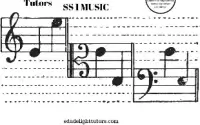The 99 Names of Allah: Exploring His Attributes Islamic Religious Studies JSS 1 First Term Lesson Notes Week 4
Islamic Religious Studies JSS 1 First Term Lesson Notes Week 4
Subject: Islamic Religious Studies
Class: JSS 1
Term: First Term
Week: 4
Age: 11 – 12 years
Topic: Attributes of Allah
Sub-topic: Understanding the 99 Names of Allah
Duration: 40 minutes
Behavioural Objectives:
By the end of the lesson, students should be able to:
- Identify some of the 99 names (Asma-ul-Husna) of Allah.
- Explain the meanings of selected attributes of Allah.
- Discuss the significance of reciting the names of Allah.
- Understand how the attributes reflect Allah’s power and mercy.
Keywords:
- Asma-ul-Husna
- Ar-Rahman
- Ar-Rahim
- Al-Malik
- Al-Qudus
Set Induction:
The teacher will begin by asking the students if they have heard of the “99 names of Allah” and how often they mention some of these names in their daily prayers.
Entry Behaviour:
Students are likely familiar with the concept of Allah having many attributes, as these are often recited in prayers.
Learning Resources and Materials:
- Qur’an
- Chart displaying the 99 names of Allah
- Audio recording of the names of Allah being recited
Building Background/Connection to Prior Knowledge:
Students already know that Allah is powerful and merciful. They may have heard some of the names of Allah in prayers.
Embedded Core Skills:
- Listening
- Religious observance
- Reading
- Collaboration
Reference Books:
- Lagos State Scheme of Work
- Islamic Religious Studies Textbook for JSS 1
Instructional Materials:
- Flashcards with names and meanings of the attributes
- Posters showing the names of Allah
- Audio recording of Asma-ul-Husna
Content:
- Asma-ul-Husna (The 99 Names of Allah):
Muslims believe that Allah has 99 beautiful names, each representing a different attribute of His power, mercy, and greatness. Reciting these names helps Muslims remember Allah’s glory and mercy. - Examples of the Attributes of Allah:
- Ar-Rahman (The Beneficent): Allah is merciful and kind to all His creation, providing for their needs.
- Ar-Rahim (The Merciful): Allah is especially merciful to those who follow His guidance.
- Al-Malik (The King): Allah is the ruler of all creation, having ultimate authority over everything.
- Al-Qudus (The Most Holy): Allah is pure, free from any imperfection or fault.
- As-Salam (The Source of Peace): Allah is the giver of peace, bringing tranquility to His creation.
- Al-Mumin (The Guarantor): Allah provides security and trust for those who believe in Him.
- Al-Muhaymin (The Protector): Allah watches over and protects His creation.
- Al-Aziz (The Self-Sufficient): Allah is powerful and independent, needing nothing from anyone.
- Al-Jabbar (The Compeller): Allah has the power to enforce His will on all creation.
- Al-Mutakabir (The Majestic): Allah is great and magnificent, far above any comparison.
- Importance of Reciting the Names of Allah: Muslims recite the names of Allah to reflect on His attributes and seek His blessings. Each name represents a quality of Allah that Muslims aim to understand and emulate in their own lives. For example, calling upon Allah as “Ar-Rahman” reminds Muslims of His mercy and encourages them to show mercy to others.
Evaluation: (Fill-in-the-Blank Questions)
- The 99 names of Allah are called __________.
a) Ar-Rahim
b) Asma-ul-Husna
c) Al-Qudus
d) Al-Malik - Ar-Rahman means __________.
a) The King
b) The Protector
c) The Beneficent
d) The Guarantor - __________ is known as the Most Holy.
a) Al-Malik
b) Al-Qudus
c) Al-Jabbar
d) Ar-Rahman - Al-Muhaymin refers to __________.
a) The Protector
b) The Majestic
c) The Self-Sufficient
d) The Compeller - Allah is referred to as the King in the attribute __________.
a) Al-Mutakabir
b) Al-Malik
c) Ar-Rahman
d) As-Salam
Class Activity Discussion: (FAQs with Answers)
- What are the 99 names of Allah called?
They are called Asma-ul-Husna. - What does Ar-Rahman mean?
It means “The Beneficent” or the most merciful to all creation. - Which name refers to Allah as The King?
Al-Malik refers to Allah as The King. - Why do Muslims recite the names of Allah?
Muslims recite the names to remember Allah’s greatness and seek blessings from Him. - What does Al-Qudus mean?
Al-Qudus means “The Most Holy.” - What is the significance of the name Al-Muhaymin?
Al-Muhaymin means “The Protector,” showing Allah’s power to watch over and protect. - How does Al-Aziz describe Allah?
Al-Aziz means “The Self-Sufficient,” indicating that Allah does not need anyone or anything. - What does Al-Jabbar signify?
Al-Jabbar means “The Compeller,” showing Allah’s authority to enforce His will. - What is the meaning of As-Salam?
As-Salam means “The Source of Peace.” - What lesson do Muslims learn from reciting Allah’s names?
Muslims learn to appreciate Allah’s attributes and incorporate those qualities into their lives.
Presentation:
Step 1:
The teacher revises the previous topic on the “Five Pillars of Islam,” reminding students how each pillar helps Muslims practice their faith.
Step 2:
The teacher introduces the new topic by explaining that Allah has 99 beautiful names, each representing a unique attribute. The teacher writes down a few examples on the board, such as Ar-Rahman and Al-Malik.
Step 3:
The teacher encourages students to recite some of the names of Allah, explaining their meanings. The teacher then allows students to give their thoughts on which attributes they hear the most during prayer and how these names remind them of Allah’s greatness.
Teacher’s Activities:
- Introduces the concept of Asma-ul-Husna.
- Writes some of the names on the board, explaining their meanings.
- Encourages students to share what they know about Allah’s attributes.
Learners’ Activities:
- Listen to the teacher’s explanations of the names.
- Recite the names of Allah aloud.
- Discuss how each name reminds them of Allah’s greatness.
Assessment: (Evaluation Questions)
- What is Ar-Rahman?
- How many names of Allah are there?
- What does Asma-ul-Husna mean?
- What does Al-Malik signify?
- Who is referred to as The Protector?
- Which name of Allah means “The King”?
- What is the importance of reciting the names of Allah?
- What does Al-Aziz mean?
- Why is Al-Qudus important?
- How does Al-Jabbar describe Allah’s power?
Conclusion:
The teacher moves around the class to mark students’ responses and ensures they understand the meanings of the names of Allah. The teacher concludes by encouraging the students to remember these attributes during their prayers and to recite them regularly.
More Useful Links
- The Significance of Allah’s Attributes in Strengthening Faith Islamic Religious Studies JSS 1 First Term Lesson Notes Week 5
- Understanding Purification in Islam: At-Taharah and Its Importance Islamic Religious Studies JSS 1 First Term Lesson Notes Week 6
- Mid Term Assessment and Break Islamic Religious Studies JSS 1 First Term Lesson Notes Week 7


